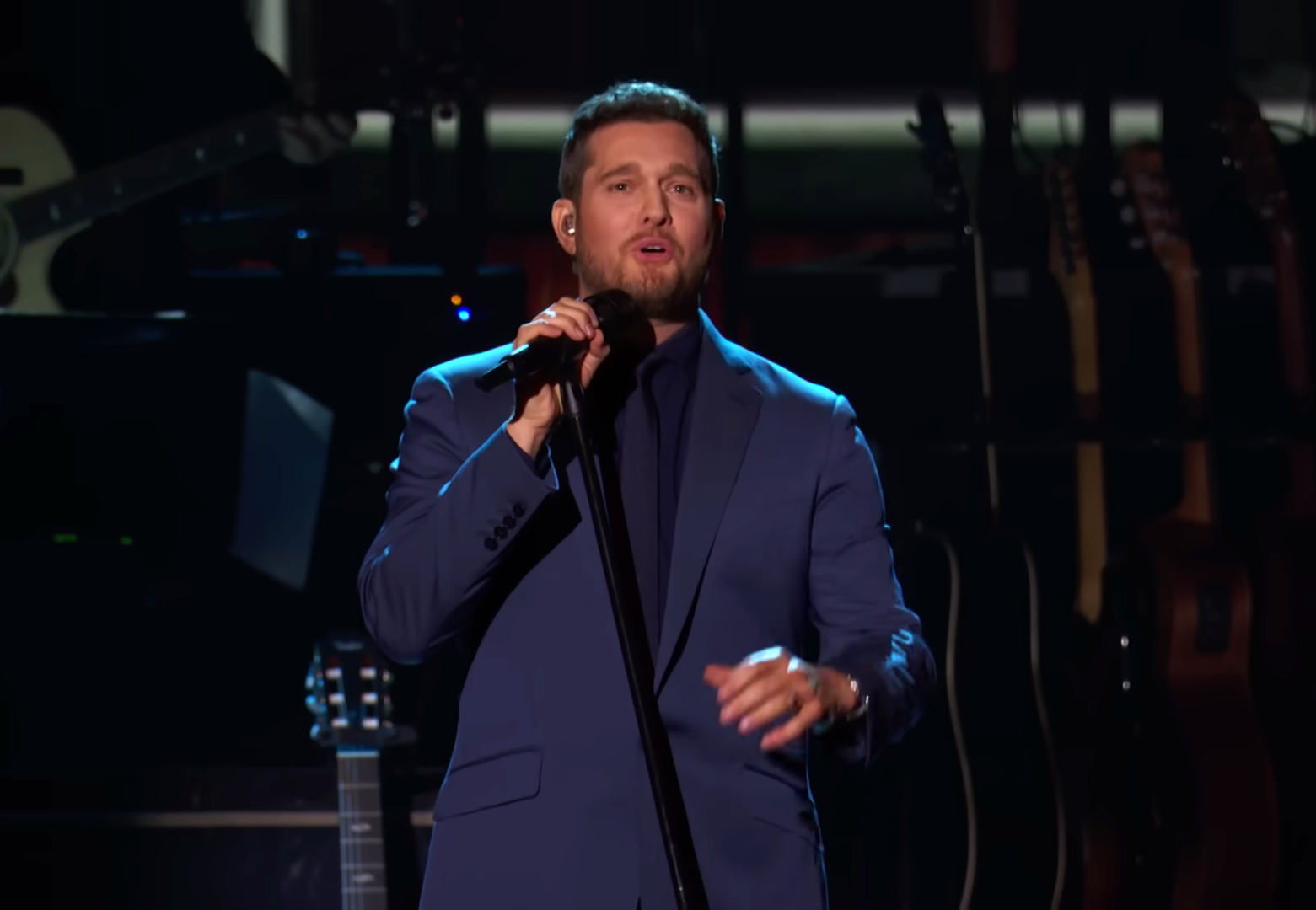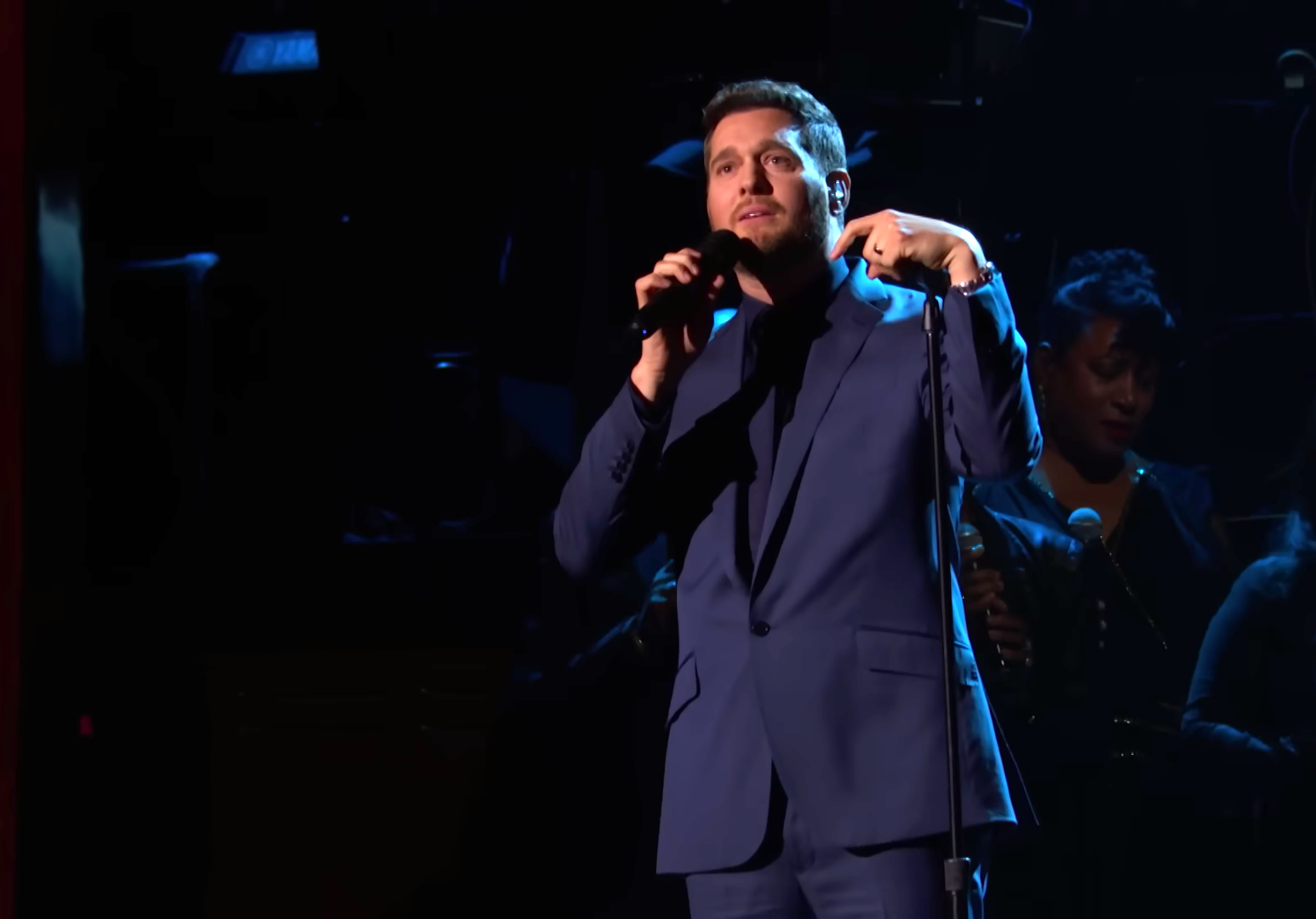The Kennedy Center Honors are always a night of glittering stars and emotional tributes, but the 46th ceremony in 2023 held a particularly special moment. It was a collision of musical eras, a bridge between the timeless songwriting of the Bee Gees and the modern classicism of one of the world’s most beloved crooners. The moment Michael Bublé took the stage to honor the legendary Barry Gibb was pure magic.
The scene was set in the grand Opera House, a room buzzing with anticipation. The honoree, Barry Gibb—the last remaining brother of the iconic Bee Gees—sat in the balcony, a look of humble gratitude on his face. He was surrounded by fellow honorees and a who’s who of political and entertainment royalty.
Then, the spotlight found Michael Bublé. He stood alone at the center of the vast stage, looking dapper and serious in a classic black tuxedo. There was no grand band, no elaborate choreography. The stage was stark, intimate, and quiet, forcing every ounce of focus onto the song and the singer.
The choice of song was perfect: “How Can You Mend A Broken Heart.” It’s a soul-wrenching ballad originally recorded by the Bee Gees in 1971, a song that showcases not just incredible melody but profound emotional depth. It was a brave choice—tackling a Gibb classic is no small feat for any vocalist.

As the first, gentle piano notes began to play, Bublé closed his eyes, clutching the microphone stand with both hands. He wasn’t there to perform as the charismatic showman we know from his concerts; he was there as a vessel for the song. His delivery was restrained, respectful, and deeply felt. He didn’t use his famous swagger or scatting; instead, he poured every bit of his technique into conveying the song’s raw vulnerability.
His voice, smooth as velvet but tinged with a palpable ache, filled the hall. He phrased the lyrics with incredible care, letting lines like “I can still feel the breeze that rustles through the trees” hang in the air with a delicate sorrow. He approached the song’s powerful climax not with a roar, but with a controlled and soaring passion that demonstrated his immense respect for the material.
The camera frequently cut to Barry Gibb in the audience. His reaction was the true measure of the tribute’s success. He wasn’t just watching; he was feeling it. He mouthed the words along with Bublé, his eyes glistening with unmistakable emotion. At one point, he placed his hand over his heart, a silent, powerful thank you to the artist on stage who was so beautifully honoring his brother’s—and his—legacy.
The performance built to its poignant conclusion, and as Bublé held the final, tender note—”How can you mend a broken heart?”—the silence lasted for a beat before the entire opera house erupted in a wave of thunderous, heartfelt applause.
Bublé, looking visibly moved, opened his eyes and immediately looked up to Barry, offering a small, respectful bow in his direction. It was a moment of pure artistic deference—one giant of song paying homage to another.
In that simple, three-minute performance, Michael Bublé did more than just sing a cover. He delivered a masterclass in interpretation, a heartfelt eulogy for lost brothers, and a sincere, flawless thank you to a man who mended so many broken hearts with his music. It was a perfect Kennedy Center Honors moment: understated, powerful, and unforgettable.
